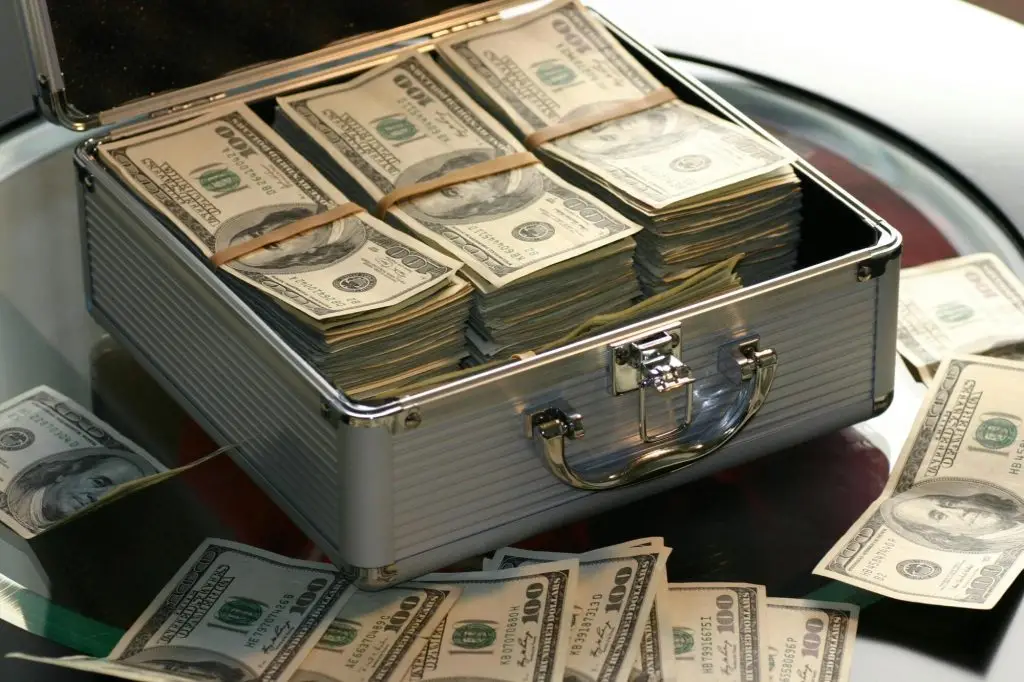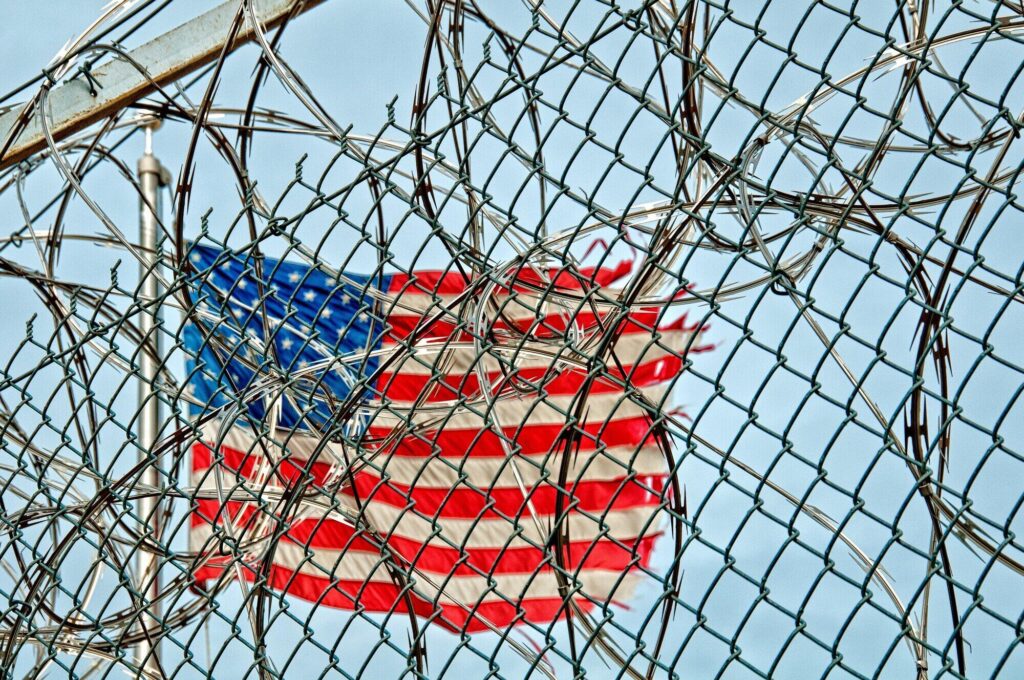If bail is $30,000, how much do I pay? When working with a bail bond company, you typically pay 10% of the total bail amount, meaning you’d pay around $3,000 for a $30,000 bail. However, additional fees and collateral requirements may apply depending on your specific situation.
Getting arrested can turn your world upside down in an instant. With more than 14 million criminal offenses reported nationwide last year, according to the FBI, arrests remain a constant concern for many individuals and their families.
When bail is set at $30,000, you may face a financial crisis that you never saw coming. Understanding your bail payment options can make the difference between spending weeks in jail or returning home to prepare your defense.
Keep reading for the lowdown.
What Is Bail?
Bail represents a monetary guarantee that allows someone accused of a crime to remain free while awaiting trial. The criminal justice system uses bail as a way to ensure defendants return for their scheduled court appearances.
When you pay bail, you’re making a promise to the court that the accused person will show up for all required legal proceedings. The court system offers several types of bail arrangements to accommodate different financial situations:
Cash Bail
Requires paying the full amount directly to the court in cash or certified funds. This option guarantees a complete refund when the case concludes, assuming all court appearances are met and no additional fees apply.
For a $30,000 bail, you would pay the entire amount upfront.
Bail Bond
Provides an alternative when families cannot afford the full cash amount. With this option, a licensed bonding agency covers the court payment for you in return for a non-refundable service fee, generally 10% of the full bail sum.
Should the accused fail to appear in court, the bonding agency becomes liable for the complete bail amount.
Property Bond
Allows defendants to use real estate or other valuable assets as collateral instead of cash. The property must typically be worth more than the bail amount, and the court places a lien on the asset until the case resolves.
This option works well for families with significant assets but limited liquid cash.
Courts determine bail amounts by considering multiple factors that impact flight risk and public safety concerns. More serious charges or repeat offenses often result in higher bail amounts, while strong community ties and stable employment may lead to lower figures.
What Does It Mean to Be on a $30,000 Bond?
Being on a $30,000 bond means you have several bail payment options available. The most expensive route involves paying the full $30,000 directly to the court.
While this guarantees a complete refund upon case completion, most families don’t have this amount readily available.
The more practical solution involves working with a licensed bail bond company. Through the bail bond process, you pay a non-refundable premium that typically runs 10% of the total bail amount in Florida.
Here’s how the process works:
- Premium Payment: You pay 10% of the bail amount ($3,000 for a $30,000 bail)
- Collateral Requirements: The bail bond company may require additional security
- Paperwork Completion: Legal documents outline all responsibilities
- Release Processing: Your loved one is typically released within hours
- Court Compliance: All scheduled court appearances must be attended
Understanding bail fees extends beyond the initial premium. Some companies charge administrative fees, payment processing charges, or annual renewals for longer cases.
Always ask for a complete breakdown of all costs upfront.
What Is the Maximum Cost of a Bail Bond?
If you pay the court directly, your maximum cost equals the full $30,000 bail amount. This money functions as a deposit that’s returned when your case concludes, minus any court fees or fines.
While expensive initially, this option eliminates ongoing premium payments. Working with bail bond companies presents different cost structures.
The standard premium runs 10% of the bail amount, totaling $3,000 for a $30,000 bail. This premium is non-refundable, representing the fee for the company’s service and financial risk.
Additional bail bond costs may include:
- Administrative fees: Usually $50-$200 for paperwork processing
- Travel charges: If the defendant is located far from the bail bond office
- Payment plan interest: When financing the premium over time
- Collateral requirements: Property, vehicles, or other assets as security
- Annual renewal fees: For cases extending beyond one year
Bail financing options have become increasingly popular as families struggle with upfront costs. Many bail bond companies offer payment plans, allowing you to pay the premium over several months.
While convenient, these arrangements often include interest charges that increase your total cost.
Risks and Considerations
Posting bail involves significant risks that extend beyond the financial investment. Understanding these potential consequences helps families make informed decisions about their bail options.
Failure to Appear Consequences
Failing to appear in court triggers immediate and severe consequences. When someone skips their court date on a $30,000 bail, the court issues a bench warrant for their arrest and declares the bail forfeited.
If using a bail bond, the company becomes responsible for the full $30,000 and will take aggressive action to locate the defendant.
Financial Loss Risks
Losing collateral or bail money represents one of the most devastating financial consequences. Cash bail paid directly to the court is forfeited entirely when defendants fail to appear.
For bail bonds, the indemnitor becomes liable for the full $30,000, and the bail bond company can seize any collateral provided to cover this loss.
Impact of Criminal History
Prior offenses and flight risk significantly influence both bail amounts and associated costs. Defendants with extensive criminal histories often face higher bail amounts, making a $30,000 bail seem modest in comparison.
Previous failures to appear in court almost guarantee higher bail or outright denial of bail privileges.
Family and Personal Effects
The ripple effects of bail decisions impact entire families, not just defendants. Co-signers and indemnitors assume financial responsibility that can last for years in complex cases. These impacts often include:
- Employment consequences from time off work and background check issues
- Housing instability due to financial strain and potential property liens
- Relationship stress from financial pressure and legal uncertainties
- Credit damage from missed payments or defaulted obligations
- Educational disruption for family members affected by the legal process
Don’t borrow against retirement funds, max out credit cards, or risk losing your home without exploring all available alternatives. Consult with multiple bail bond companies to compare rates and payment options before making decisions.
Bail Refunds and Aftermath
Understanding when and how bail refunds work helps families plan their finances and set realistic expectations about recovering their money.
Cash Bail Refunds
Full cash bail refunds occur when defendants meet all court obligations, regardless of case outcome. Whether found guilty or innocent, the court returns the entire $30,000 cash bail minus any applicable court fees or fines.
This process typically takes 30-60 days after case conclusion, depending on court processing times. Processing delays for bail refunds are common and require patience.
Courts must verify all case requirements are met, process paperwork, and issue refund checks through their accounting departments. Complex cases or busy court systems can extend this timeline significantly.
Non-Refundable Bondsman Fees
Bail bondsman fees remain nonrefundable under all circumstances. The $3,000 premium paid for a $30,000 bail bond represents payment for services rendered and cannot be recovered even if charges are dropped or the defendant is found innocent.
This represents the cost of the bail bond company’s guarantee and service.
Collateral Return Process
Getting back property used as collateral requires meeting all bond conditions successfully. Once the court case concludes and all obligations are fulfilled, bail bond companies must return collateral within a reasonable timeframe.
However, any liens placed on property must be properly released through official documentation.
Documentation and Record Keeping
Documentation proves crucial for recovering collateral and understanding your rights. Keep detailed records of all property provided as collateral, including photographs, appraisals, and condition reports.
This evidence protects against disputes and ensures proper return of your assets. Essential documents to maintain include:
- Bail bond agreements and all signed contracts
- Payment receipts showing premium and fee payments
- Collateral documentation, including photos and appraisals
- Court appearance records proving compliance with all requirements
- Communication records with bail bond companies and court officials
Proper documentation serves as your protection throughout the entire bail process and beyond. These records can prevent misunderstandings, resolve disputes quickly, and ensure you receive everything you’re entitled to when your case concludes.
Organized record keeping often makes the difference between a smooth resolution and costly legal complications.
Alternatives and Assistance Options
When facing a $30,000 bail, families have several alternatives to paying the full amount upfront or working with traditional bail bond companies.
Personal Recognizance Release
Personal recognizance represents the most cost-effective option when available. This arrangement allows defendants to be released without posting bail. However, they must pledge not to miss court.
Courts typically reserve this option for minor offenses and defendants with strong community ties and no flight risk.
Legal Aid Organizations
Legal aid organizations throughout Florida provide assistance and guidance for families struggling with bail costs. These nonprofit organizations can help:
- Navigate the legal system
- Explore and explain options
- Provide financial assistance or connections to bail funds
Many legal aid organizations offer free consultations to help families understand their rights and available resources. They can also help convince the judge to reduce bail.
Bail Funds and Community Support Programs
Bail funds and community support programs have emerged in many jurisdictions to help low-income families. These organizations pool resources to pay bail for qualifying individuals, though demand often exceeds available funds.
Research local programs in the Orlando, Kissimmee, and Sanford areas for potential assistance. Some religious organizations and community groups also provide emergency financial support for bail situations.
Frequently Asked Questions
How Long Do I Have to Pay a Bail Bond?
Most bail bond companies require payment of the premium before processing your loved one’s release. However, many companies offer flexible payment arrangements for qualified applicants.
Some accept partial payments with the remainder due within 30-90 days, while others provide extended payment plans lasting several months.
Can I Get My Bail Bond Money Back?
The premium paid to a bail bond company is nonrefundable, regardless of your case outcome. This fee represents the cost of the bail bond service.
However, any collateral provided as security will be returned once the case concludes and all obligations are met, assuming no additional fees or damages are owed.
What Happens If I Can’t Afford the 10% Premium?
If you cannot afford the full premium upfront, discuss payment plan options with bail bond companies. Many offer financing solutions, accept collateral instead of cash, or work with co-signers who can guarantee payment.
Some companies also provide discounts for military personnel, seniors, or clients with excellent credit histories.
Are There Hidden Fees in Bail Bonds?
Reputable bail bond companies should provide transparent pricing upfront. However, additional costs may arise from administrative fees, payment processing charges, travel expenses, or annual renewal fees for lengthy cases.
Always request a written breakdown of all potential costs before signing any agreements.
What Assets Can Be Used as Collateral?
Bail bond companies typically accept various forms of collateral, including real estate, vehicles, jewelry, electronics, or other valuable personal property. The collateral value must typically equal or exceed the total bail amount.
All collateral is returned once the case concludes and obligations are fulfilled.
If Bail Is $30,000, How Much Do I Pay? Get the Help You Need Today
When asking “If bail is $30,000, how much do I pay?“, the answer depends on your circumstances. Whether you choose to pay the full amount or work with a bail bond company, knowing the specific costs involved protects you from unexpected expenses.
At Bail2Go, we provide transparent pricing and flexible payment solutions for families throughout Orlando, FL. Our experienced team understands the urgency of your situation and works quickly to secure your loved one’s release while explaining all costs upfront.
With 24/7 expert guidance through every step of the unsecured bail process, our experienced agents handle all questions and paperwork to ensure timely release and complete peace of mind for families. Get in touch to learn how we can help minimize potential disruption to your life with bail bond services.




